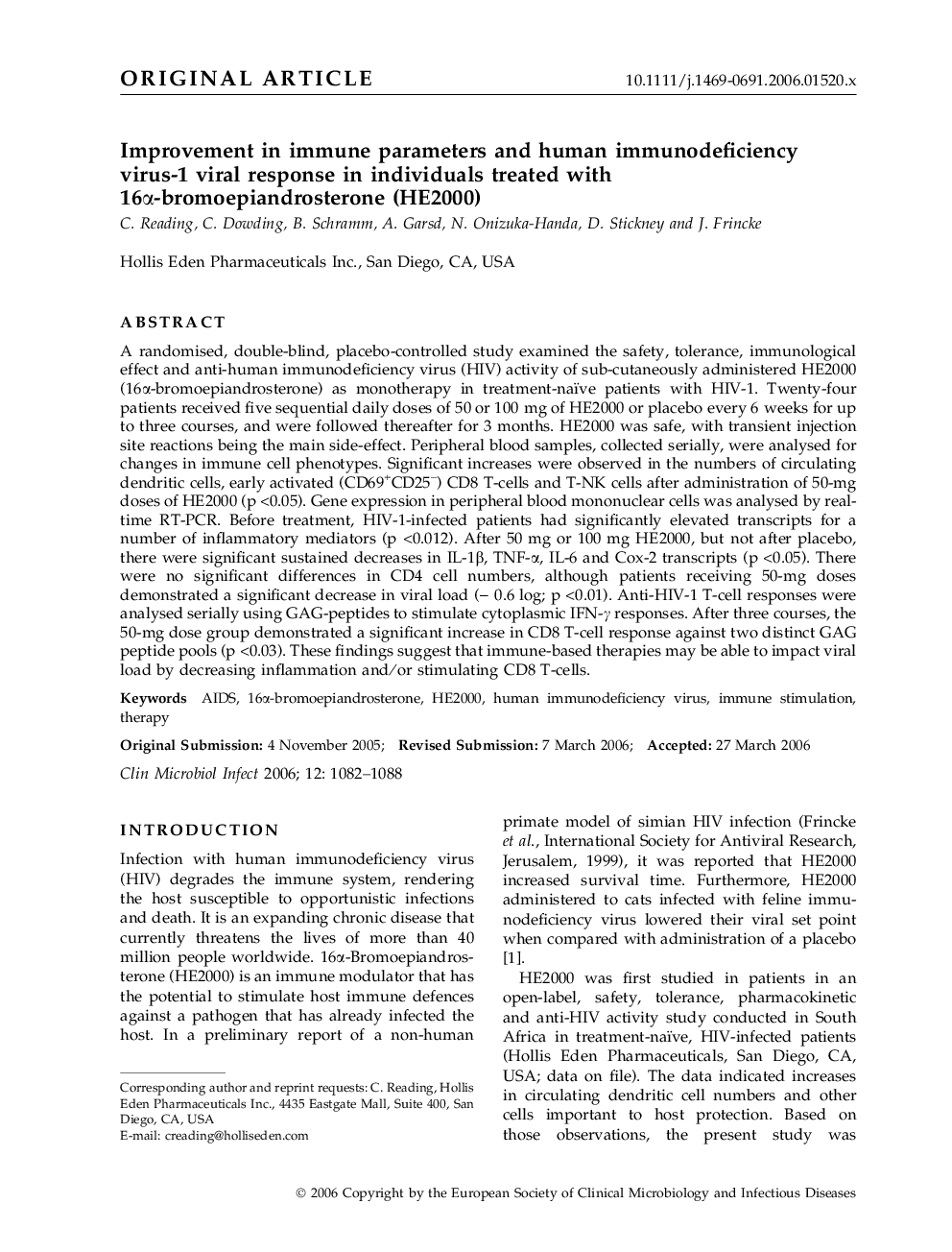| Article ID | Journal | Published Year | Pages | File Type |
|---|---|---|---|---|
| 3398798 | Clinical Microbiology and Infection | 2006 | 7 Pages |
ABSTRACTA randomised, double-blind, placebo-controlled study examined the safety, tolerance, immunological effect and anti-human immunodeficiency virus (HIV) activity of sub-cutaneously administered HE2000 (16α-bromoepiandrosterone) as monotherapy in treatment-naïve patients with HIV-1. Twenty-four patients received five sequential daily doses of 50 or 100 mg of HE2000 or placebo every 6 weeks for up to three courses, and were followed thereafter for 3 months. HE2000 was safe, with transient injection site reactions being the main side-effect. Peripheral blood samples, collected serially, were analysed for changes in immune cell phenotypes. Significant increases were observed in the numbers of circulating dendritic cells, early activated (CD69+CD25–) CD8 T-cells and T-NK cells after administration of 50-mg doses of HE2000 (p <0.05). Gene expression in peripheral blood mononuclear cells was analysed by real-time RT-PCR. Before treatment, HIV-1-infected patients had significantly elevated transcripts for a number of inflammatory mediators (p <0.012). After 50 mg or 100 mg HE2000, but not after placebo, there were significant sustained decreases in IL-1β, TNF-α, IL-6 and Cox-2 transcripts (p <0.05). There were no significant differences in CD4 cell numbers, although patients receiving 50-mg doses demonstrated a significant decrease in viral load (– 0.6 log; p <0.01). Anti-HIV-1 T-cell responses were analysed serially using GAG-peptides to stimulate cytoplasmic IFN-γ responses. After three courses, the 50-mg dose group demonstrated a significant increase in CD8 T-cell response against two distinct GAG peptide pools (p <0.03). These findings suggest that immune-based therapies may be able to impact viral load by decreasing inflammation and/or stimulating CD8 T-cells.
